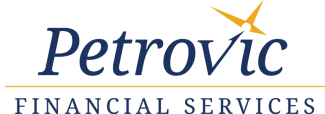
Health Savings Accounts: The Best Bang for Your Buck?
Health Savings Accounts: The Best Bang for Your Buck? - Bryson Slater, CFP®
Even for many healthy individuals, medical expenses will be the single largest expense that they will pay in retirement. Some estimates show that the average American will pay close to $265,000 to cover out-of-pocket health care costs throughout his or her glory years. A Health Savings Account (HSA) is one of the few tax-advantaged options that can help combat these astronomical costs. It just takes a little bit of planning. An HSA is triple tax advantaged, which is more advantageous than any other type of account on the market. Triple tax advantaged means the amount you contribute to the HSA does not count as income, market gains are not taxed, and distributions are tax-free if the funds are used for a qualified medical expense. Because of this tax benefit, some financial professionals recommend maxing out an HSA before any unmatched 401(k) or IRA contributions are made.
In order to be eligible for an HSA, you must be enrolled in a High Deductible Health Plan. This means your deductible must be at least $1,350 for single coverage or $2,700 for family coverage. There are a few other qualifications your healthcare plan must meet to be eligible for an HSA so be sure to check with your insurer prior to making contributions.
Contributions are limited by the type of insurance coverage you have. For 2019, individuals with single coverage can contribute up to $3,500, while those with family coverage can contribute up to a total of $7,000. If you're 55 or older anytime in 2019, you'll be able to contribute an extra $1,000. These contribution limits are for a combination of both employee and employer contributions. Although you can open these accounts on an individual basis, many employers offer an HSA as an additional employee benefit. Contributions can be made to an HSA up until the time an individual enrolls in Medicare.
Many HSA accounts have a variety of investment options to choose from: Cash, money markets, mutual funds and stocks. Generally, there is a low-interest cash account selected as the default option. Some plans have a minimum balance requirement that must be achieved before you are allowed to invest your funds in the market. After this threshold is met, you are free to choose any of the investments offered by the plan. These investment options will allow you to take full advantage of the market.
Distributions from an HSA must be spent on qualified medical expenses in order to receive a tax-free distribution. If the expense does not meet the requirements of a qualified medical expense, the distribution is taxed as ordinary income plus a 20% penalty. After the age of 65, non-qualified medical expense withdrawals are taxed as ordinary income but there is not an associated penalty; essentially turning the HSA into an IRA. Luckily, there are a large number of medical expenses that meet the qualified medical expense criteria (http://www.hsacenter.com/what-is-an-hsa/qualified-medical-expenses/). As long as you have proper documentation, a withdrawal from your HSA account can even be used to cover previous qualified medical expenses. HSA balances do not have to be spent each year. You can leave the funds in the account year after year allowing you to accrue a substantial balance.
HSAs are a powerful investment vehicle that should be considered by anyone who meets the qualifications for opening an account. They offer a tax efficient way to pay for medical expenses that would otherwise be paid out of pocket. Although, paying for these qualified medical expenses out of pocket in your early years, instead of using HSA funds, may be a tax savvy move. This would allow your HSA more time to take full advantage of the tax benefits and compounding interest, which, according to Albert Einstein, is the most powerful force in the universe!

